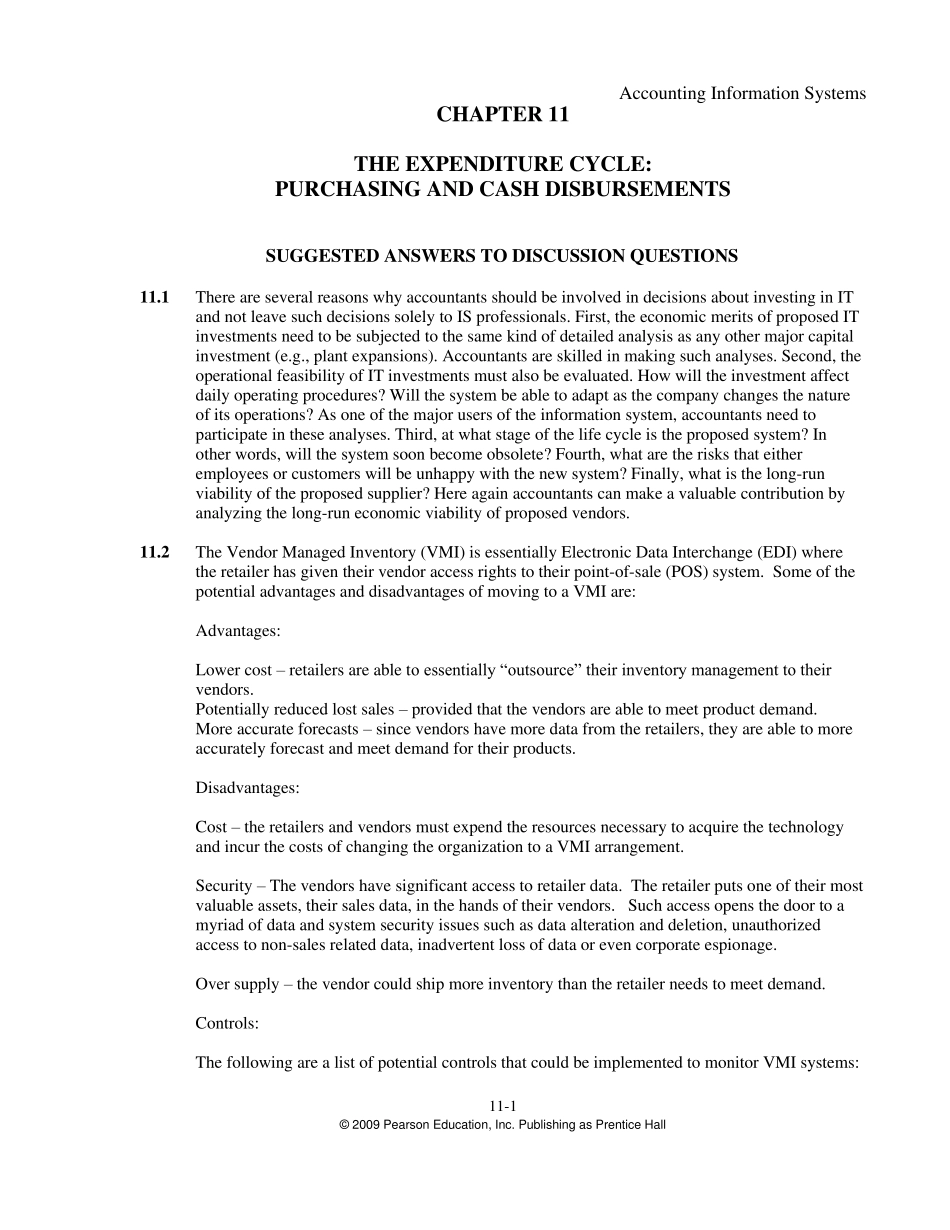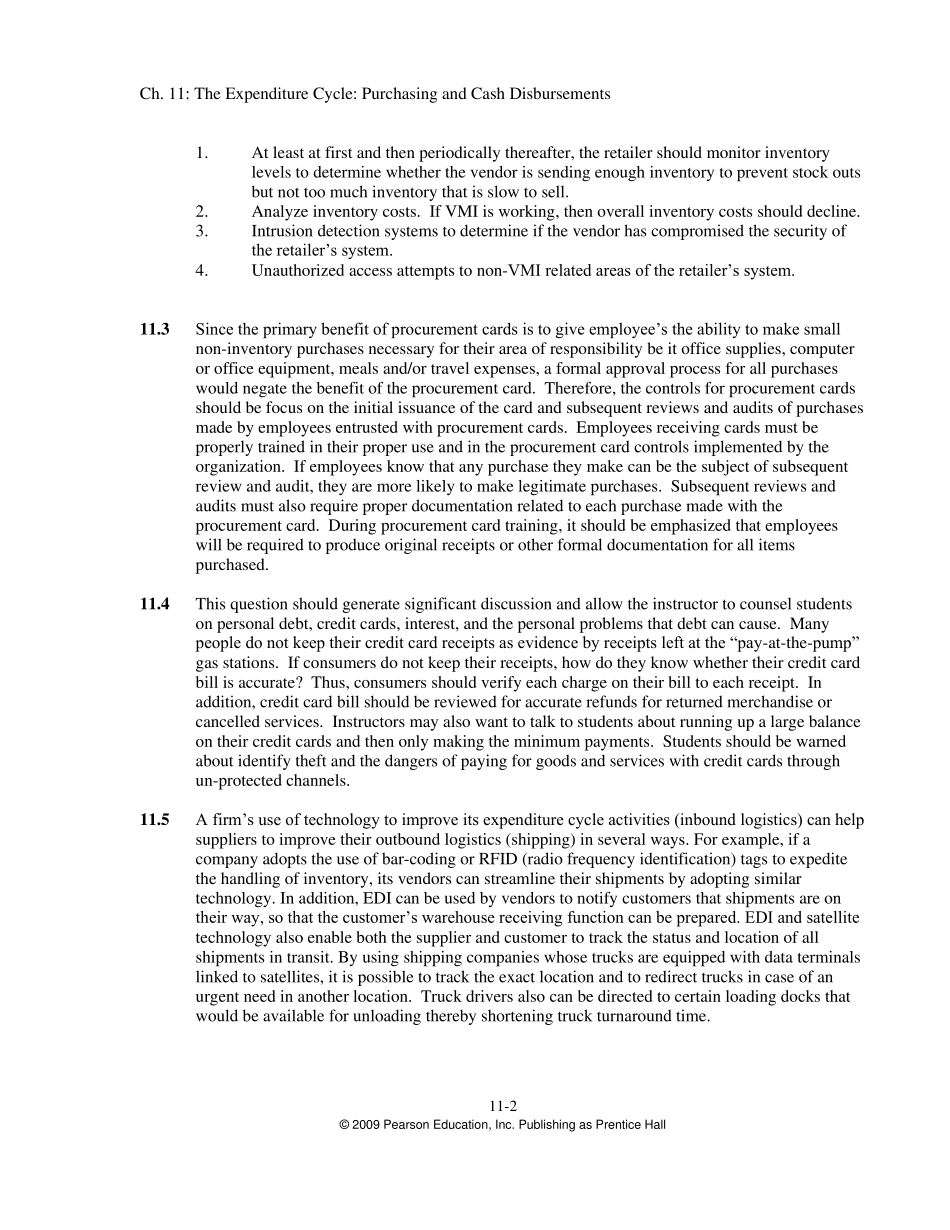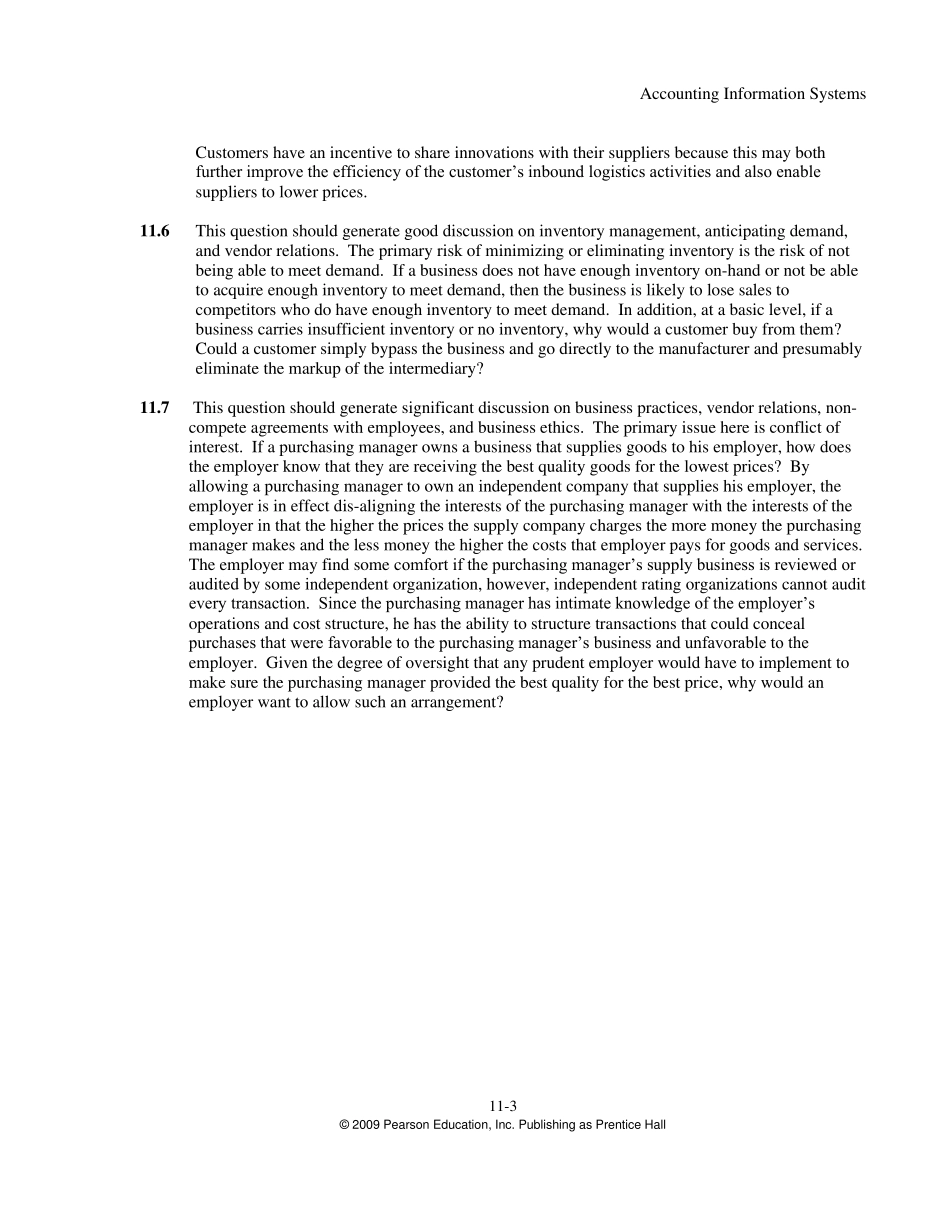Accounting Information Systems 11-1 © 2009 Pearson Education, Inc. Publishing as Prentice Hall CHAPTER 11 THE EXPENDITURE CYCLE: PURCHASING AND CASH DISBURSEMENTS SUGGESTED ANSWERS TO DISCUSSION QUESTIONS 11.1 There are several reasons why accountants should be involved in decisions about investing in IT and not leave such decisions solely to IS professionals. First, the economic merits of proposed IT investments need to be subjected to the same kind of detailed analysis as any other major capital investment (e.g., plant expansions). Accountants are skilled in making such analyses. Second, the operational feasibility of IT investments must also be evaluated. How will the investment affect daily operating procedures? Will the system be able to adapt as the company changes the nature of its operations? As one of the major users of the information system, accountants need to participate in these analyses. Third, at what stage of the life cycle is the proposed system? In other words, will the system soon become obsolete? Fourth, what are the risks that either employees or customers will be unhappy with the new system? Finally, what is the long-run viability of the proposed supplier? Here again accountants can make a valuable contribution by analyzing the long-run economic viability of proposed vendors. 11.2 The Vendor Managed Inventory (VMI) is essentially Electronic Data Interchange (EDI) where the retailer has given their vendor access rights to their point-of-sale (POS) system. Some of the potential advantages and disadvantages of moving to a VMI are: Advantages: Lower cost – retailers are able to essentially “outsource” their inventory management to their vendors. Potentially reduced lost sales – pr...


